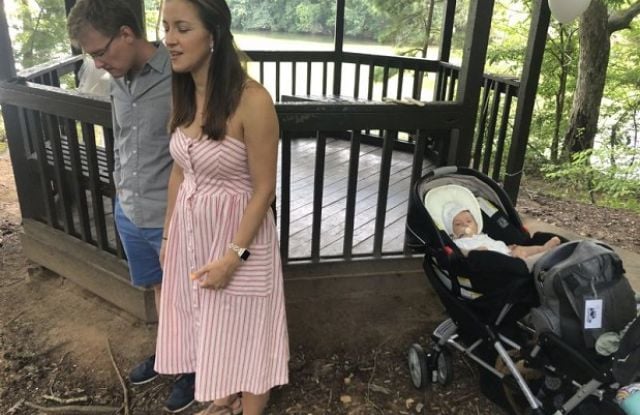Have you found your tribe yet?

changes lives and AIM people like to hang out with one another. But I’ve
got a lot to learn on the subject.
souls that killed those living in tribes.
So it’s no wonder that we struggle so to find our tribe. We don’t understand tribes.”
Thus, successful blog writers have tribes (more on that here).
A friend highlighted this when she wrote to express her discouragement:
“I spent three years with AIM, believing that AIM was going to be my ‘tribe’. I wanted to be under that guidance and authority. I had a deep respect for you, and still do. I can honestly say that you personally have stood by me and continued to encourage me when others seemed to give up. But last year when I was looking for direction, I was turned away. I was sent off on my own, and that hurt.
Am I trying to make spiritual covering/authority into something it is not supposed to be? Is there an unhealthy dependece there that I don’t understand?”
“You’re looking for your tribe. There are two ways to connect with a tribe – connecting with the people in it or the projects they do.Don’t look to leaders to create connection for you. They can’t. They can help cover you insofar as you’ve committed to a project and they can provide a context in which it’s possible for you to connect to people. But it’s up to you to dive into people’s lives. If you don’t feel the connection, you may want to ask some friends why it hasn’t happened. But don’t look for leaders to do more than they can do.”



Seth, welcome back, our prayers were answered. As for a tribe, yes my wife and I have found ours, Grandchildren. This just happens as you grow older they look to you for answers, solutions and most of all direction. My wife and have become the “consistent” gate keeper with God the center. We, grandparents have a large roll when it comes to the tribe. Our emphasis is His life and pouring His life into our tribe. Great blog today and again, welcome home! Frank <><
It’s good to be back, Frank. Thanks for your prayers! I aspire to be where you are with grandchildren.
this is really good. the notion that we all want to belong to something is for sure something my age demographic longs for.
I think “tribe” is where you’re connected in the Body of Christ, where you’re functional and ministered to. As a “toe” I am connected to the “Foot Tribe.” I am in relationship to the other toes and we help the foot do its job of walking, kicking and running. If I am not well, the foot tribe doesn’t do as well as a result. If I smell, I offend the “nose tribe” but they alert the “hand tribe” that we may need to be ministered to in a cleansing way. I like when the foot tribe is in need and the hand tribe ministers to us by rubbing our soreness or scratching our itch. We (the foot tribe) help the whole body stand up and we move the whole body from place to place. I am hardly ever aware of my benefit to the whole body. I’m just a toe in the foot tribe. I’m not even the big toe and am mostly covered by a shoe. But the body would miss me if I was gone…especially my tribe!
BTW, what verse or verses are we referring to when we talk about spiritual covering?
My tribe is my local church body. For the first time ever, I understand what it means to be part of the tribe. I belong. We are learning together, although sometimes painstakingly, what it means to live in community.
You said it well above that it’s about the people of the tribe, not the projects. I’m part of a church body that encourages (and challenges) me to just do something. I don’t need to go through a committee or the elder board if I see a need. The need that I’ve seen is with Congolese refugees who unexplicably attend our service each week. So I love them, and they love me. I served them, and they serve me. And the Body has learned to love them too… so much so that this week we added Swahili songs to our music. My Congolese friends are my tribe within the Tribe. According to them, I’m the white African and I couldn’t be more proud.
this post put words to the what i’ve been feeling since my daughter left to work for a missionary organization (not AIM) overseas. she has found her tribe. and left ours.
i would love to hear your thoughts on how to adjust to the loss of community when someone leaves your tribe and what, if any, responsibility the person leaving has to their old tribe. does AIM promote a lot of communication with family back home, or do they encourage young people to focus on making connections and building community with their new tribe?
I’m very grateful that I have found my tribe at AIM, here and now, and I’m rejoicing in that. I also have a tribe back in Iowa. I’m a blessed woman.
Cara,
Good question and issue. My thoughts:
1. If they leave their hometown, a good son or daughter will always respect and communicate with their family and those who have invested in them.
2. Most struggle not with the question of having left a “soft place” already and forgetting to honor their parents, but of hanging around their parents too long and not testing their wings. Separation is essential to establishing themselves as mature adults and far too many parents have fostered their immaturity by not helping them to leave the nest.
3. At AIM we seek to balance #1 and #2. Young people desperately need both. Parents need to encourage them to leave, at least for a season, and trust that the relationship is strong enough to weather that season.
4. If your daughter is not communicating, my guess is it indicates one of two things: Either she is just a poor communicator, or she felt smothered at home and was as desperate to leave as others (maybe not you) were to keep her there. If this is so, the first step in establishing better communication is for that person to apologize for what he or she did to keep your daughter from following a call and express what she felt she needed to do and be.
thanks seth for your reply.
in noodling over this more, i do think that part of it is just that she is a poor communicator – she has said that herself. (which is funny because the tools for communication have never been better!) but a bigger part is just my struggle figuring how to parent this adult child – the shedding of roles, expectations, etc.
the fact that she is following God is such a blessing and we are so thankful and happy for her to have found a people and project to belong to, yet at the same time, there is an empty place at our table, an empty room upstairs.
Appreciate the vulnerability in this post- and the thoughts.